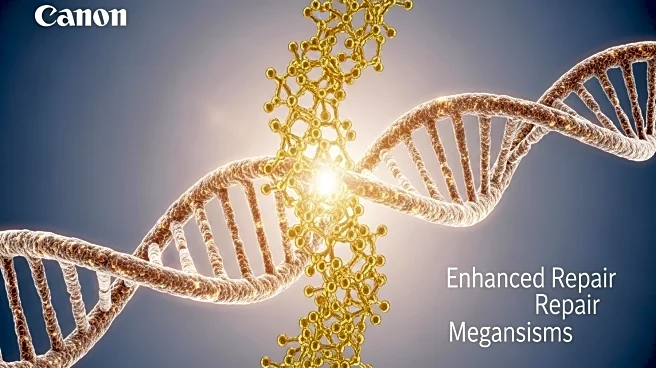What's Happening?
Researchers have discovered that naked mole rats possess a variant of the immune protein cGAS that enhances DNA repair, contributing to their longevity. This protein, found in many animals, typically suppresses DNA repair in humans and mice, increasing cancer risk. However, in naked mole rats, cGAS boosts DNA repair, potentially explaining their extended lifespans. The discovery could lead to therapies aimed at extending human lifespans by improving DNA repair mechanisms.
Why It's Important?
The study of naked mole rats offers valuable insights into the biological mechanisms underlying aging and longevity. Understanding how these rodents maintain their health over long lifespans could inform the development of anti-aging therapies for humans. The research supports the idea that DNA repair is crucial in preventing age-related diseases and extending lifespan. It highlights the potential for genetic and pharmacological interventions to enhance human health and longevity.
What's Next?
Researchers may explore gene editing and mRNA delivery methods to replicate the mole rat's cGAS protein effects in human cells. Additionally, the search for small-molecule drugs that mimic the protein's function could lead to new anti-aging treatments. Further studies on the molecular pathways involved in DNA repair and aging will be essential in advancing these therapeutic strategies.
Beyond the Headlines
The findings raise ethical considerations about the pursuit of extended human lifespans and the implications for society. It prompts discussions on the balance between scientific advancement and the natural aging process, as well as the potential societal impacts of increased longevity.









